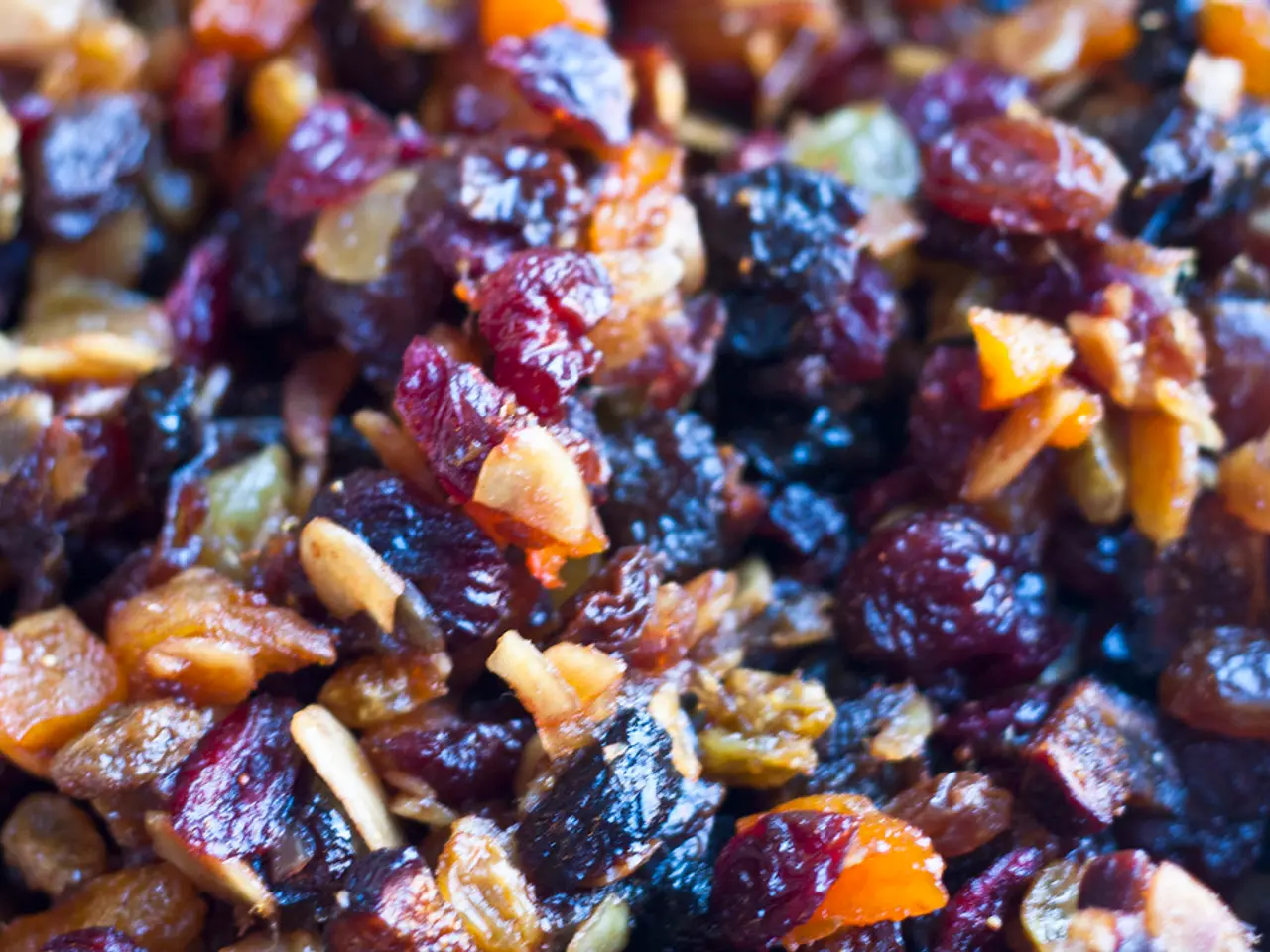Essential Role of Intrinsic Factor in Vitamin B12 Uptake
In the complex world of digestion, parietal cells in the stomach play a crucial role, particularly in the absorption of vitamin B12. These cells, located in the gastric glands lining the stomach, are responsible for the production and regulation of intrinsic factor (IF), a glycoprotein essential for the absorption of vitamin B12 in the ileum of the small intestine.
The process begins with dietary vitamin B12 bound to proteins in food. In the stomach, parietal cells secrete hydrochloric acid and intrinsic factor. The hydrochloric acid released helps free vitamin B12 from dietary proteins, making it available for subsequent binding to intrinsic factor.
The free vitamin B12 then binds to salivary haptocorrin, but this bond is broken in the duodenum by pancreatic enzymes. The now-free vitamin B12 then binds to the intrinsic factor produced by parietal cells. This vitamin B12-intrinsic factor complex travels to the terminal ileum, where intrinsic factor facilitates the absorption of vitamin B12 into the bloodstream.
Intrinsic factor protects vitamin B12 from digestion as it moves through the gastrointestinal tract and mediates its uptake in the ileum. Without intrinsic factor secretion by parietal cells, vitamin B12 absorption is severely impaired, leading to potential deficiencies such as pernicious anemia—a condition linked to the destruction or dysfunction of parietal cells.
In summary, the role of parietal cells includes synthesizing and secreting intrinsic factor necessary for vitamin B12 absorption, secreting hydrochloric acid which assists in freeing vitamin B12 from food proteins, regulating the availability of intrinsic factor, thus controlling vitamin B12 absorption and maintaining normal red blood cell maturation and neurological function.
The release of intrinsic factor is regulated by various stimuli, including food intake, gastrin, and histamine. Intrinsic factor-blocking antibodies can prevent Castle factor from escorting Vitamin B12, leading to Vitamin B12 deficiency. Intrinsic factor binds to vitamin B12 in the gastric lumen, facilitating its efficient absorption in the ileum.
Parietal cells in the stomach also produce hydrochloric acid (HCl), a strong acid that helps break down food and kill bacteria. The stomach's secretion of hydrochloric acid is a crucial part of the digestive process, providing an acidic environment that kills harmful bacteria and breaks down food.
The stomach is lined with a special tissue called the mucosa, which contains tiny pits called gastric pits. The gastric mucosa forms a protective blanket lining the stomach walls, shielding it from the acidic environment created by the stomach's own HCl.
Intrinsic factor-blocking antibodies can interfere with the absorption of Vitamin B12, potentially leading to serious consequences for red blood cell production and overall health. The role of Castle factor is to facilitate the absorption of Vitamin B12, escorting it across the intestinal wall, allowing the body to absorb this essential nutrient.
Vitamin B12, Castle factor, and intrinsic factor-blocking antibodies are important unsung heroes in the body's health, playing a vital role in red blood cell production and maintaining normal neurological function. Without them, the body would struggle to absorb this essential nutrient, leading to potential deficiencies and health complications.
In the context of health-and-wellness, understanding the role of science in digestion is crucial, as parietal cells in the stomach, integral to the process, synthesize and secrete intrinsic factor, an essential nutrient carrier for vitamin B12 in the ileum of the small intestine. Furthermore, these cells also contribute to nutrition by producing hydrochloric acid, aiding in the disentanglement of vitamin B12 from food proteins.




